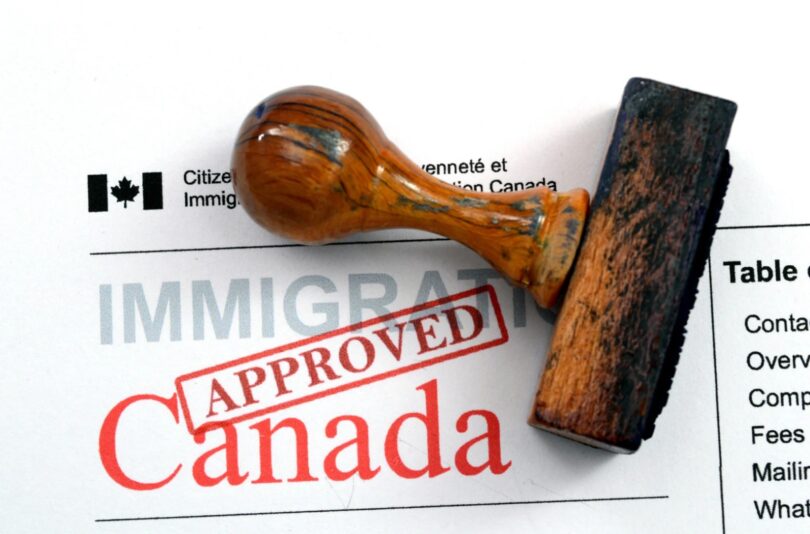Advertisements
Canada is one of the greatest destinations for immigrants looking for better opportunities, education, and a high quality of life. Are you a student searching for scholarships, a skilled worker seeking visa sponsorship, or a family hoping to start a new life? Canada has many programs to support your journey.
In this article, we’ll discuss these programs. You’ll also learn how to settle in smoothly and build a successful future in Canada.
Why Canada?
If you’re looking to study or work abroad, Canada is one of the best places to consider. But why? What makes Canada different from other countries when it comes to scholarships and visa sponsorship? Let’s see:
1. Canada Wants Immigrants
Unlike some countries that make it hard for foreigners to settle, Canada actually wants immigrants. The government sees them as an important part of the country’s growth. Because of this, there are many programs that make it easier for students and workers to get scholarships and visa sponsorship.
2. Plenty of Scholarships
Canada has a lot of scholarships, especially for international students. Many universities, private organizations, and even the government offer financial aid to help students study without worrying too much about money. Some scholarships cover tuition fees, while others even help with living expenses.
3. Easy Visa Pathways
Canada offers different types of visas for students and workers. If you get a scholarship, it’s often easier to apply for a student visa. Plus, after finishing school, Canada allows students to stay longer and even apply for permanent residency.
4. Work and Study Opportunities
Many students worry about how to survive while studying. In Canada, international students with a study permit can work part-time while studying and full-time during school breaks. This makes it easier to support yourself financially.
5. Diversity and Inclusiveness
Canada is one of the most welcoming countries in the world. People from different backgrounds live and work here without fear of discrimination. The government and schools offer support to help immigrants settle in and succeed.
Scholarships for Immigrants in Canada
If you’re thinking about studying in Canada but worried about the cost, don’t stress! There are plenty of scholarships available to help international students, including immigrants. These scholarships come from three main sources: the government, universities, and private organizations.
Advertisements
Government-Funded Scholarships
The Canadian government offers scholarships to attract smart and talented students from around the world. These scholarships are usually fully funded, meaning they cover a big chunk (or all) of your tuition, living costs, and even travel expenses.
Here are some top government-funded scholarships:
Vanier Canada Graduate Scholarships (Vanier CGS)
- This is for PhD students who are outstanding in academics and leadership.
- Worth $50,000 per year for three years.
Canada-ASEAN Scholarships and Educational Exchanges for Development (SEED)
- This is for students from ASEAN countries (like the Philippines, Indonesia, and Vietnam).
- Supports short-term study or research in Canada.
Banting Postdoctoral Fellowships
- This is for students who have completed their PhD and want to do further research.
- Provides $70,000 per year for two years.
Canadian Commonwealth Scholarship Program
- This is available to students from Commonwealth countries (like Nigeria, India, and Ghana).
- Covers tuition, travel, and living expenses.
University-Specific Scholarships
Most Canadian universities offer their own scholarships to help international students afford tuition. These scholarships may be fully funded (covering all costs) or partially funded (covering only a portion of tuition fees).
Here are some top university-specific scholarships:
Lester B. Pearson International Scholarship (University of Toronto)
- For students with excellent grades and leadership skills.
- Covers tuition, books, and living expenses for four years.
UBC International Scholars Program (University of British Columbia)
- Provides full or partial scholarships to students based on academic performance and financial need.
York University International Student Scholarship
- Offers $20,000 to $35,000 per year for outstanding students.
University of Waterloo International Master’s and Doctoral Awards
- Helps graduate students with tuition costs (up to $10,000 per year).
Private & Non-Government Scholarships
Besides the government and universities, many companies, charities, and private foundations offer scholarships to help students achieve their dreams. These scholarships often target specific groups, such as women in STEM, students from developing countries, or students studying specific subjects.
Here are some great private scholarships:
Trudeau Foundation Scholarships
- For PhD students studying social sciences or humanities.
- Provides up to $60,000 per year for research and living expenses.
The MasterCard Foundation Scholars Program
- Supports talented students from Africa.
- Covers full tuition, accommodation, and other expenses.
FINCAD Women in Finance Scholarship
- For women studying finance or business.
- Offers $20,000 towards education.
How to Apply for a Scholarship in Canada
Applying for scholarships can seem tricky, but if you follow the right steps, you’ll have a better chance of getting one.
Step 1: Find the Right Scholarship
- Look for scholarships that fit your level of study (undergraduate, master’s, PhD).
- Check if you meet the requirements (some are only for students from specific countries).
- Visit the official websites of universities, the Canadian government, or private organizations.
Step 2: Gather Your Documents
Most scholarships ask for:
- Your school results (academic transcripts)
- A personal statement (an essay explaining why you deserve the scholarship)
- Letters of recommendation (from teachers, professors, or employers)
- Proof of English or French skills (like IELTS or TOEFL)
- A research proposal (if applying for a PhD)
Step 3: Apply Before the Deadline
- Most scholarships have deadlines between December and March for studies starting in September.
- Some government-funded scholarships close even earlier, so double-check the deadline.
Step 4: Wait and Prepare for Interviews
- Some scholarships may require an interview.
- Check your email regularly for updates.
Immigration Routes for Immigrants in Canada
Canada is also seen as one of the most immigrant-friendly countries in the world as it offers various immigration programs to help people move for work, study, family reunification, or permanent settlement.
Some of these immigration pathways include:
Employer-Specific Work Permits
If you’re looking to work in Canada, one of the quickest ways to enter the country is through an employer-sponsored work permit. These permits allow foreign workers to take jobs with a specific employer in Canada. However, not all jobs qualify, and employers may need government approval before hiring a foreign worker.
Here are the main employer-specific work permit programs:
Temporary Foreign Worker Program (TFWP)
- This program allows Canadian employers to hire foreign workers for jobs they can’t find Canadians to fill.
- To prove this, the employer must get a Labour Market Impact Assessment (LMIA)—a document that shows hiring a foreign worker won’t negatively affect Canadian workers.
- TFWP covers various industries, including agriculture, hospitality, healthcare, and skilled trades.
This program is for people with a job offer from a Canadian employer who has received an LMIA approval.
International Mobility Program (IMP)
- Unlike the TFWP, this program does NOT require an LMIA, making it easier and faster to process.
- It includes special programs like:
- Intra-Company Transfers (for employees moving from a branch of their company to Canada).
- Post-Graduation Work Permit (PGWP) (for international students who complete their studies in Canada).
- NAFTA and other trade agreements (for professionals from countries like the U.S. and Mexico).
This program is for skilled professionals, students, and employees of multinational companies.
Global Talent Stream (GTS)
- This is an express work permit program designed to bring highly skilled workers into Canada, especially in technology and IT fields.
- The processing time is as fast as two weeks, making it one of the quickest ways to get a Canadian work permit.
- Popular tech jobs under GTS include software engineers, AI specialists, data scientists, and cybersecurity experts.
This program is for tech professionals and highly skilled workers with a job offer from a Canadian employer approved under GTS.
Permanent Residency
If you want to make Canada your home permanently, you need to apply for Permanent Residency (PR). As a PR holder, you can live, work, and study in Canada indefinitely and even apply for citizenship after a few years.
Here are the most popular PR pathways:
Express Entry
- Express Entry is Canada’s main immigration system for skilled workers.
- It uses a points-based system called the Comprehensive Ranking System (CRS).
- You earn points based on your age, education, work experience, and language skills.
- Every few weeks, Canada invites the highest-scoring candidates to apply for PR.
This program is for skilled workers, professionals, and recent graduates with strong work experience.
Provincial Nominee Program (PNP)
- Every province in Canada has its own PNP, allowing them to invite workers based on local labor needs.
- Some PNPs require a job offer from a company in that province, while others invite candidates based on skills and work experience.
- If you get nominated by a province, your PR application gets a big points boost in Express Entry.
This program is for people who want to live in a specific province and have skills that match the province’s labor needs.
Family Sponsorship Program
One of Canada’s biggest values is family reunification, which is why they allow permanent residents and citizens to sponsor their loved ones to come and live in Canada.
Here are the main family sponsorship programs:
Spousal & Common-Law Partner Sponsorship
- If you’re married or in a common-law relationship with a Canadian citizen or PR holder, they can sponsor you.
- You can apply whether you’re inside or outside of Canada.
- Both same-sex and opposite-sex couples can apply.
This program is for legally married couples or partners who have lived together for at least one year.
Parents and Grandparents Sponsorship
- If you’re a Canadian citizen or PR holder, you can apply to bring your parents or grandparents to Canada.
- Canada opens this program once a year, and there are limited spots, so applicants must submit an interest form and hope to be selected.
This program is for parents or grandparents of Canadian citizens or PR holders.
Dependent Child Sponsorship
- If you have biological or adopted children under 22 years old, you can sponsor them to live with you in Canada.
- If your child is over 22, they may still qualify if they have a physical or mental disability that makes them dependent on you.
This program is for parents who want to bring their children to Canada.
Rural & Northern Immigration
Many immigrants settle in big cities like Toronto, Vancouver, and Montreal, but Canada also wants people to move to smaller towns and rural areas. That’s why they created this program.
- This program helps skilled workers move to smaller communities that need workers.
- To qualify, you need:
- A job offer from an employer in one of the participating rural communities.
- Work experience in an in-demand occupation (like healthcare, manufacturing, or construction).
- RNIP communities are located in provinces like Ontario, Manitoba, Alberta, and British Columbia.
This program is for skilled workers who don’t mind living in a smaller town instead of a big city.
Cost of Living and Financial Support for Immigrants in Canada
Moving to Canada is exciting, but it’s also important to understand the cost of living and what financial support is available to help you settle in.
Cost of Living in Canada
The cost of living in Canada varies depending on the city or province you choose. Generally, bigger cities like Toronto, Vancouver, and Montreal are more expensive, while smaller towns and rural areas are more affordable.
Here’s a rough idea of monthly expenses:
- Housing: $1,200 – $2,500 (rent varies by city)
- Food & Groceries: $300 – $600
- Transportation: $100 – $200 (public transit pass)
- Health Insurance: Free for PR holders (some provinces require new immigrants to wait before coverage starts)
- Utilities & Internet: $150 – $250
To live comfortably, a single person may need $2,500 – $4,000 per month, while a family might need $4,000 – $6,000.
Financial Support for New Immigrants
Luckily, Canada provides several financial assistance programs to help newcomers settle in:
- Settlement Grants & Free Services – Some provinces offer financial aid and free services to help immigrants find jobs and housing. Organizations like IRCC-funded settlement agencies provide support.
- Canada Child Benefit (CCB) – If you move to Canada with children, you may be eligible for monthly financial support to help with child-related expenses.
- Low-Income Support Programs – If you earn a low income, you can apply for benefits like GST/HST credits, housing assistance, and food bank support.
- Student Financial Aid – If you’re coming as a student, Canada offers government loans and grants to help with tuition fees.
Before moving, research provincial support programs, as benefits vary depending on where you settle.
Settling in Canada: What to Expect as a New Immigrant
Once you arrive in Canada, settling in can feel overwhelming. But don’t worry! Here’s a simple guide to help you navigate your first few weeks and months.
First Steps After Arriving
- Get Your Social Insurance Number (SIN) – This is required to work and access government services. You can apply online or visit a Service Canada office.
- Open a Bank Account – Canadian banks offer special newcomer accounts with no fees. Popular banks include RBC, TD, Scotiabank, BMO, and CIBC.
- Find a Place to Stay – If you don’t have permanent housing yet, you can start with temporary accommodations like Airbnb, hotels, or newcomer housing services.
- Get a Phone Plan & Internet – Mobile service providers like Rogers, Bell, and Telus offer different plans. Consider cheaper options like Freedom Mobile if you’re in a major city.
- Apply for Health Insurance – Healthcare is free in Canada, but some provinces require a waiting period before coverage starts. You may need private insurance in the meantime.
Finding a Job & Understanding Work Culture
- Update Your Resume – Canadian resumes focus on skills and achievements, not just job duties.
- Use Job Portals – Sites like Indeed, LinkedIn, and Job Bank are great for finding jobs.
- Connect with People – Networking is key in Canada! Attend job fairs, join professional groups, and connect on LinkedIn.
- Understand Workplace Culture – Canadians value punctuality, teamwork, and politeness in the workplace.
Community Support & Networking
Canada has a huge immigrant community, and there are many support groups to help you adjust.
- Join Immigrant Associations – Groups like Newcomers Canada and YMCA Newcomer Services provide mentorship and social support.
- Attend Local Events – Cities often host cultural festivals, networking events, and job fairs to help immigrants feel at home.
- Find Religious & Cultural Communities – Canada is diverse, so whether you’re looking for churches, mosques, temples, or cultural centers, you’ll find a welcoming community.
Frequently Asked Questions (FAQs)
-
Can I get a full scholarship as an immigrant in Canada?
Yes! Many government, university, and private scholarships cover full tuition and living expenses. Your chances improve with strong academic records and a solid application.
-
Do I need a job offer to move to Canada?
Not always. If you’re applying through Express Entry, you don’t need a job offer, but it boosts your score. Employer-sponsored work permits do require a job offer.
-
How long does it take to get Permanent Residency (PR) in Canada?
Express Entry can take as little as 6 months, while other routes like PNP or family sponsorship may take 1-2 years.
-
What’s the easiest way to immigrate to Canada?
Express Entry is the fastest for skilled workers. If you have a job offer, the Global Talent Stream (GTS) or TFWP are quicker work permit options.
-
Can I bring my family if I immigrate to Canada?
Yes! Canada allows spousal, child, and parent sponsorship, but each has different requirements and processing times.
-
How much money do I need to live in Canada as a newcomer?
A single person needs around $2,500 – $4,000 per month, while a family may need $4,000 – $6,000, depending on the city.
-
What support is available for new immigrants in Canada?
Free services include settlement programs, job search help, financial aid, and language training. Some provinces also offer grants for newcomers.
-
Can I apply for PR while on a work or student visa?
Yes! Programs like Canadian Experience Class (CEC) and Provincial Nominee Program (PNP) allow workers and students to apply for PR.
Conclusion
Moving to Canada is a big step, but with the right information and preparation, it can be a smooth and rewarding experience. Canada offers many pathways for immigrants to succeed, from scholarships and visa sponsorship to job opportunities and financial support.
What you need to do is to research your options, prepare strong applications, and take advantage of government and community resources. Whether you’re coming to study, work, or reunite with family, Canada has a place for you. Don’t miss out on the given opportunity!
Advertisements






